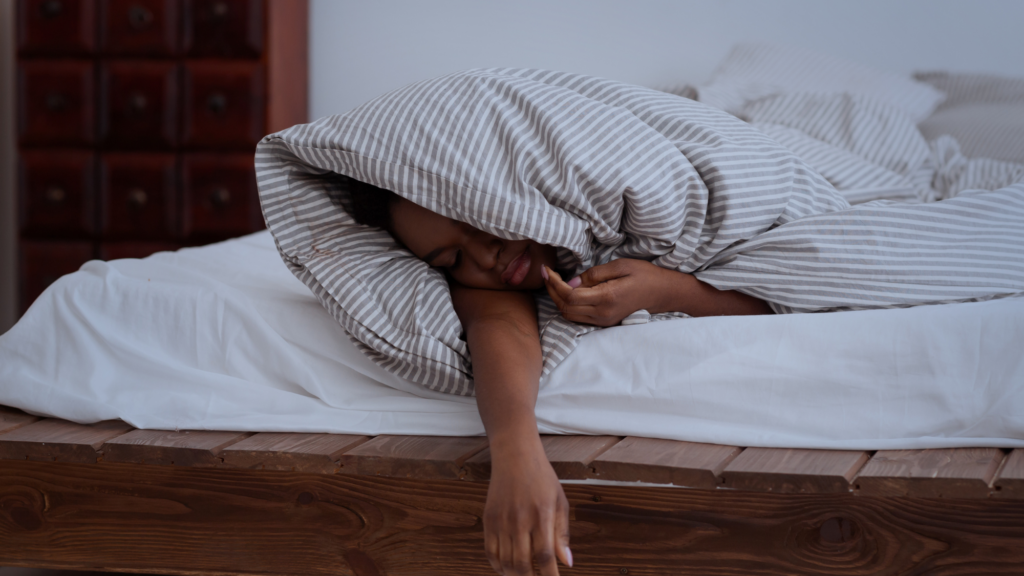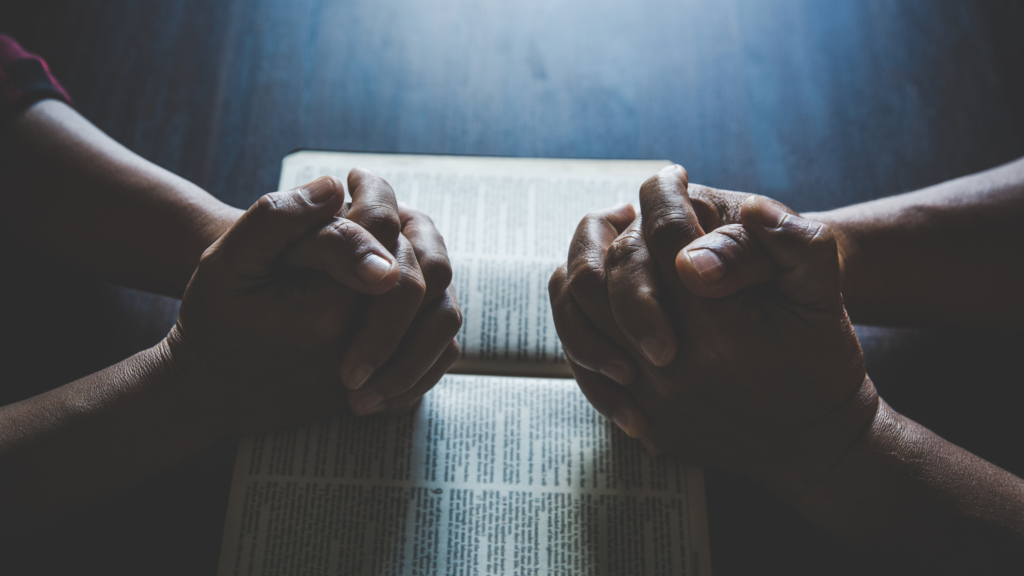Here’s a factoid that regularly does the rounds: it takes people an average of seven minutes to fall asleep. This sounds impossibly, wondrously short to me — even the real figure, which is probably more like 15 minutes, induces envy in this sometimes-insomniac. But I’ve discovered others consider it unreasonably long (bless their snoozy hearts).
I’m far from alone, though, in my sleep troubles. Australians are poor sleepers even compared with other countries. A ResMed global sleep survey earlier this year found that more than 50 per cent of Aussies report that stress has affected their sleep since the pandemic, and only one-in-ten wake up feeling refreshed. Unsurprisingly, one in three of those whose sleep had declined in the past year blame financial pressures.
For something so utterly routine (we will spend around a third of our entire lives sleeping) it’s strange how tenuous a grasp we have on sleep.
Another study looked at twelve-hundred 22-year-old Australians, one-in-four of whom rated the quality of their sleep “fairly bad” or “very bad”. It found that the situation may be worse than they think: while 77 per cent said they normally slept for the 7-9 hours recommended for their age range, an overnight sleep study showed that 78 per cent did not in fact get to seven hours.
For something so utterly routine (we will spend around a third of our entire lives sleeping) it’s strange how tenuous a grasp we have on sleep. We know about many of the benefits — for physical and mental health, for cognitive and behavioural functions — but scientists still don’t really know why we sleep.
It’s strange that this thing that is absolutely necessary can at the same time be (for many) so elusive. As the writer and insomniac Bill Hayes once put it, sleep is “more like an emotion than a bodily function. As with desire, it resists pursuit. Sleep must come find you.”
It’s also strange that sleep is a universal daily experience, yet everything about it is resistant to sharing. We’re surprised to find others fall asleep so quickly, or take so long. Even those who share a bed must say goodnight and then voyage, solo, off on their respective seas, to report back in the morning on their radically different experiences within the same three-square-metres of real estate.
Dreams, too, are so strange, and so difficult to communicate. I went through a phase — I think I was unemployed at the time — when once asleep, or perhaps in the fog between sleeping and waking, it would suddenly dawn on me that I had a job I kept forgetting to turn up to. How had I forgotten? I would regularly rush off to remedy this and discover (a classic dream trope) I was not wearing pants! For months, I lived this double life: panicking in my sleep; oblivious when awake. Our “nightlife” is a parallel realm, and transmission between this world and the waking one is patchy.
Lately, the form my insomnia takes is that I am regularly awake between around 3 and 5am. “The hollow hour”, Nobel Prize-winning poet Wisława Szymborska calls it, in her poem “Four in the Morning”:
The very pit of all the other hours.
No one feels good at four in the morning.
I certainly don’t. I fret, I freeze, I freak out. Sometimes about real challenges in my waking life; sometimes not. I once spent that “hour when earth betrays us” (Szymborska again) paralysed by the possibility that, some day, somehow, I might be attacked by a shark. How was it endurable to live in a world where such a thing might happen? How had I been doing it all this time?

“Keep watch, dear Lord …”
The Anglican priest and (until recently) New York Times columnist Tish Harrison Warren writes:
“Each night we practice facing our truest state: we are exposed, we cannot control our lives, we will die … The darkness of nighttime amplifies grief and anxiety … We are all so very, very vulnerable.”
Warren harks back to a time before electricity, before streetlights, before police and ambulances, to religious practices that defied the encroaching threat of night: “in a darkness so complete that it’s hard for us to now imagine, Christians rose from their beds and prayed vigils in the night.” Monks would pray through the small hours: “On my bed I remember you; I think of you through the watches of the night”, wrote David, future king of ancient Israel, in a declaration of longing and trust in his God (Psalm 63:6).
The title of Warren’s book on the experience of not sleeping and yet not despairing is Prayer in the Night: For Those Who Work or Watch or Weep. It draws from the words of Compline, a service designed to be prayed at the completion of the waking day:
“Keep watch, dear Lord, with those who work, or watch, or weep this night, and give your angels charge over those who sleep. Tend the sick, Lord Christ; give rest to the weary, bless the dying, soothe the suffering, pity the afflicted, shield the joyous; and all for your love’s sake. Amen.”
As the individual or the community retires to bed, there is an acknowledgement of the other things that go on while most of us are sleeping — of the many things that circumvent sleep: pain, grief, fear. The work that must be taken up regardless of the hour. The creeping near of death. (Hayes writes that death occurs most frequently between 4 and 6am: “It’s as if the old, injured, or ill body, sustained by sunlight, runs out of juice just before dawn.”)
“You hem me in …”
My husband, a doctor, is often on-call overnight. Partly by temperament, perhaps, partly the result of long medical training, he slides in and out of sleep much more easily than I do. “Call me if you can’t sleep”, he would say on the phone each night before we were married, living in different states. (“Wake me if you can’t sleep”, he says now.) Sometimes I do; sometimes it helps. Sometimes the 4am aloneness is impenetrable, and the presence of another only amplifies it.
It is a vastly different thing to be awake at 4am in the grip of your own merciless thoughts, and to be awake at 4am in the embrace of one from whom you know you can never be separated.
Last week, having mentioned the current nightly tug-of-war to a friend and colleague, she sent me a handhold: “You hem me in behind and before, and you lay your hand upon me.” It’s from another song of David, Psalm 139 (the biblical book of Psalms has a surprising amount to say about sleep and its freight). David reminds himself, in one of the most beautiful poems in the Bible, that he is never truly alone, for God who knows him through and through is always with him:
“If I rise on the wings of the dawn,
if I settle on the far side of the sea,
even there your hand will guide me,
your right hand will hold me fast.”
“I think of a parent’s comforting touch on a restless child”, my friend wrote to me, “and I feel God’s loving presence, because I’ve done that myself to a child.”
You hem me in … You lay your hand upon me. It’s become my fallback, my traction, my incantation, these last few nights. It is a vastly different thing to be awake at 4am in the grip of your own merciless thoughts, and to be awake at 4am in the embrace of one from whom you know you can never be separated.
A tether to the light
Prayer in the Night begins with Warren and her husband praying the Compline service together in a hospital room in the middle of the night as she gushes blood from a miscarriage:
“It isn’t that ‘Help! Make the bleeding stop!’ wasn’t holy or sophisticated enough … I wanted healing — but I needed more than just healing. I needed this moment of crisis to find its place in something greater: the prayers of the church, yes, but more, the vast mystery of God, the surety of God’s power, the reassurance of God’s goodness.”

Pain, crisis, fear, all have a way of swallowing up everything else in the world. 4am has a way of cancelling out everything good or bright. We need something big enough to swallow 4am, to contain those moments of weeping, watching, wearying, working in the night and keep them from growing monstrous beyond their bounds.
The vulnerability is real. When we do have to confront the night, what it shows us about our illusions of control and self-sufficiency, productivity and trivial distraction, is itself no illusion (even if it usually evaporates with the dawn). But neither is that desolate nightscape as definitive as it seems. What the unwilling midnight watcher needs is a tether to a larger reality — a tether to the light.
Natasha Moore is a Research Fellow at the Centre for Public Christianity. She is the author of For the Love of God: How the Church is Better and Worse Than You Ever Imagined (which was the 2020 Australian Christian Book of the Year) and of The Pleasures of Pessimism. She is also a co-host of the podcast Life & Faith. She holds a PhD in English literature from the University of Cambridge.
This article first appeared at ABC Religion & Ethics.